A Pet Owners Guide to Lung Cancer in Dogs: Causes, Symptoms, and Treatment
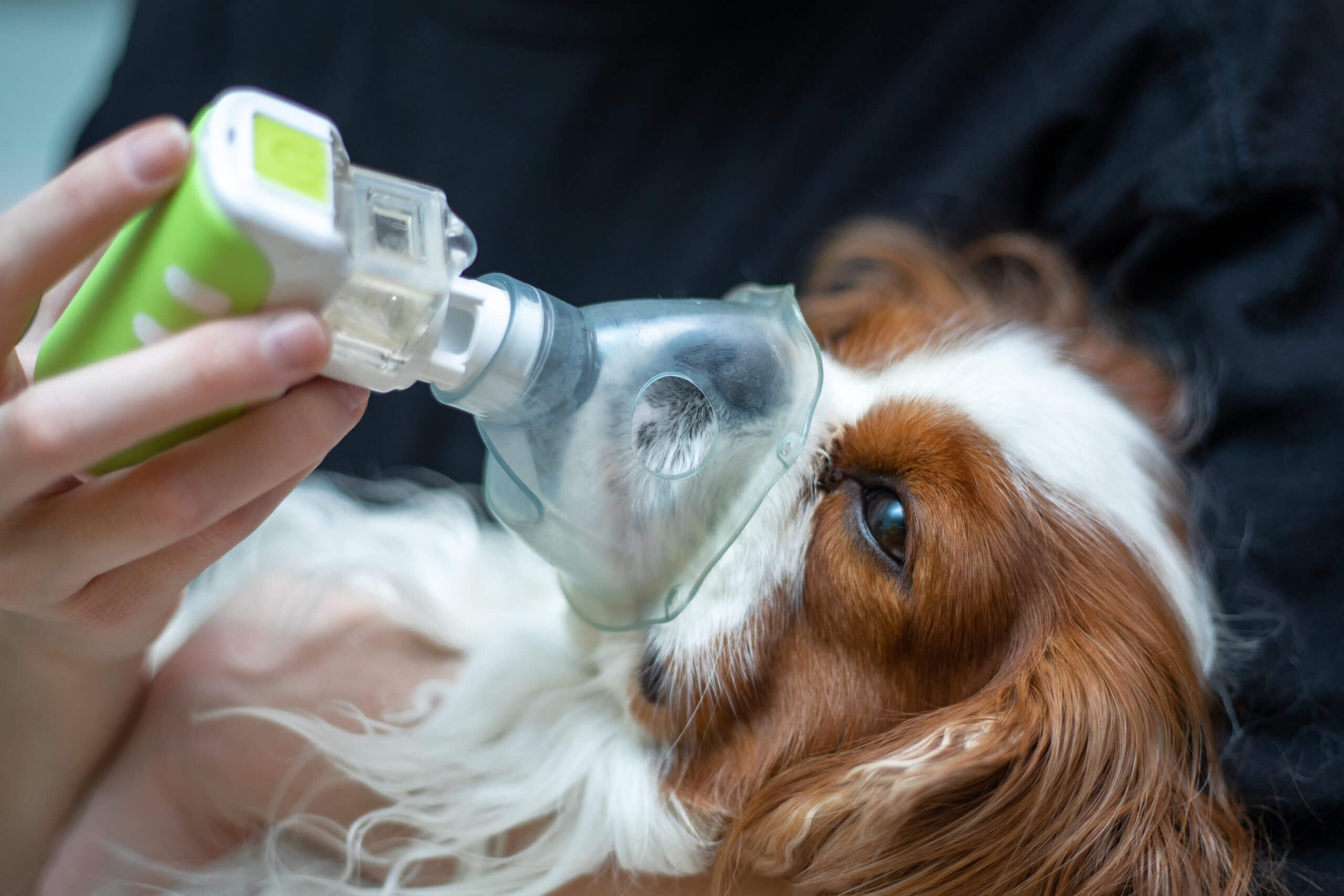
Table of Contents
What is Lung Cancer in Dogs?
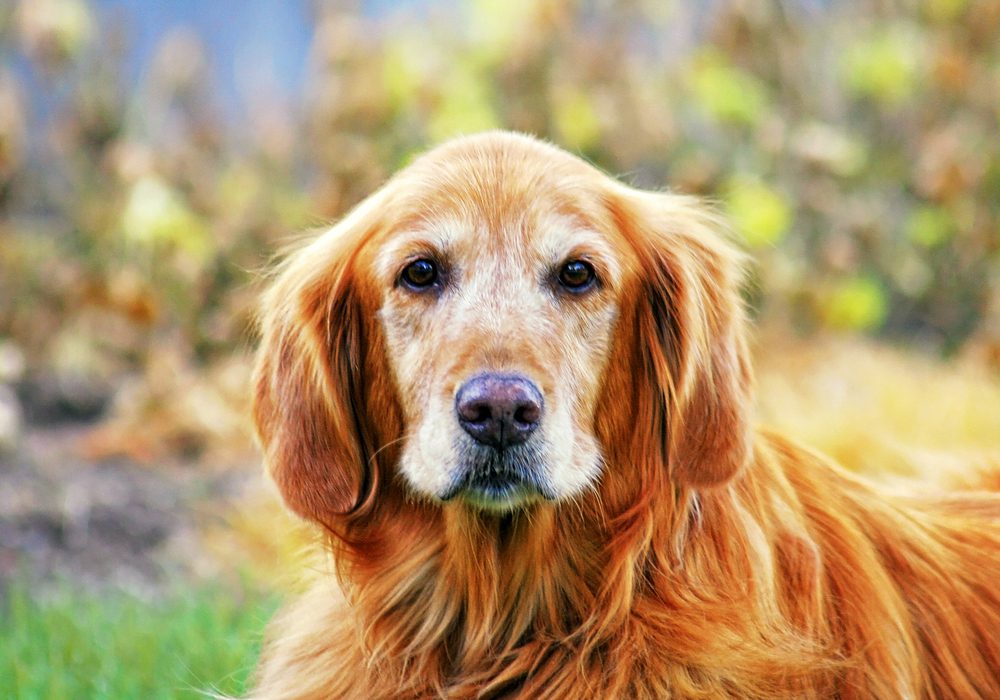
Lung cancer or lung carcinoma is the abnormal proliferation of cells in the dog’s lungs. This type of cancer is very rare and accounts for less than 1% of all canine cancer cases (according to the UF Health Small Animal Hospital). Primary lung tumors are rare but aggressive as they have a high potential to spread.
Lung cancer in dogs is normally diagnosed late. In fact, most cases of lung cancer are discovered when capturing chest x-rays for other reasons (for example respiratory disease). This is because lung cancer doesn’t show any obvious signs in its early stages and later on shows similar symptoms to other respiratory conditions.
In general, lung cancer is more common in older dogs, with most cases being ten years or older. The pet’s sex does not play a role in the incidence of lung cancer in dogs. The number of cases of lung cancer in dogs is much lower than in other canine cancers.
Is Lung Cancer Painful for Dogs?
Yes, lung cancer, like any type of cancer, is painful for most dogs. However, in 25 to 35% of patients with lung cancer, there are seemingly no signs and symptoms.
However, in dogs that display signs of lung cancer, the condition is very difficult to live with, causing a significant decrease in the dog’s quality of life, and it will affect the overall animal behavior.
Types of Lung Cancer in Dogs
Lung cancer in dogs can be classified based on various criteria (low grade or high-grade tumors, malignant or being tumors). However, the most important classification is into primary and secondary or metastatic lung tumors. Below you will find a summary of different types of lung cancer.
Primary Lung Tumors. This is a type of lung tumor that starts in the lungs. It is, in most cases, cancerous. Primary lung cancer is very rare but has a high chance and rate of metastasis. It can spread to other organs in the chest cavity like the regional lymph nodes, blood vessels, and bones. It can also get to further organs like the brain.
The most common type of primary lung cancer is pulmonary adenocarcinoma which accounts for over 75% of the cases. Other types of primary lung cancer are small cell lung cancer.
Metastatic Lung Tumors. Metastatic cancer of the lungs is a metastatic disease in which cancer starts in other body parts and tissues and spreads to the lungs. The metastatic lesions in the lungs are the most common type of lung cancer in dogs.
Metastatic lung cancer can start from various organs, including the stomach, esophagus, ovaries, bones, uterus, etc. If the lung cancer has spread from other organs, there is a high risk of local lymph node involvement.
What Causes Lung Cancer in Dogs?
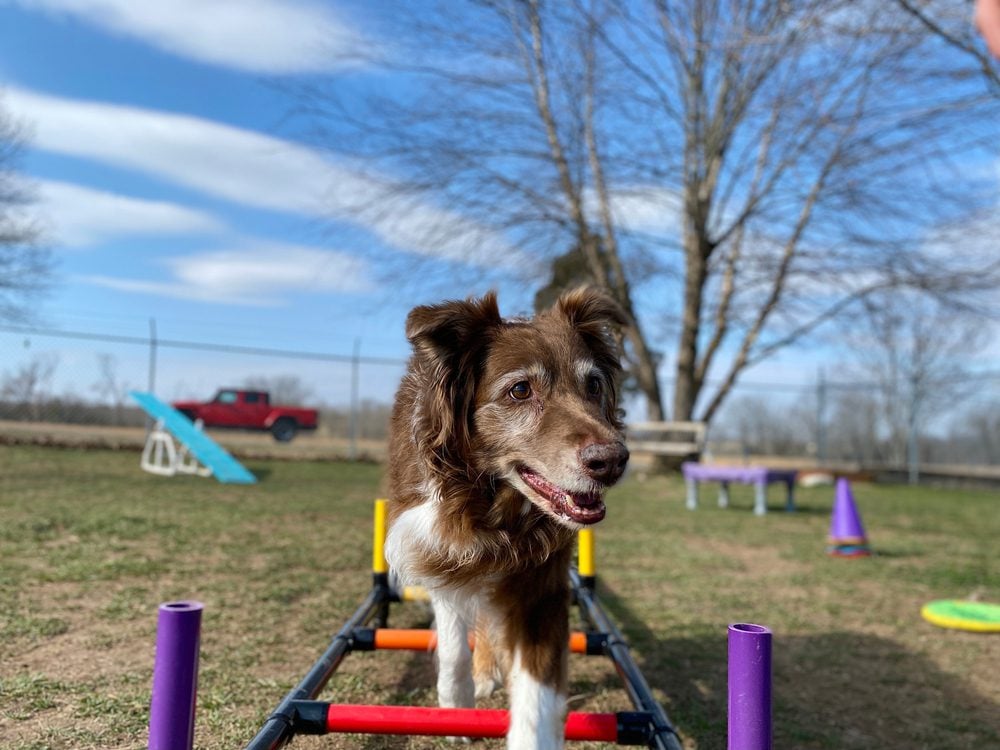
The exact cause of lung cancer is hard to isolate. The cause of cancer in a dog is usually a combination of several possible reasons working together. These risk factors include:
- Age. Lung cancer is most often diagnosed in older dogs. The average age of diagnosis is between 10 and 12 years of age. However, younger dogs can also develop lung cancer.
- Breed. Boxers, Doberman Pinschers, Australian Shepherds, and Bernese Mountain Dogs, Irish Setters, are some of the dog breeds that are more prone to lung cancer. Lung cancer is also more common in Persian cats.
- Genetics. Dogs whose parents had lung cancer are more likely to develop lung cancer which is why we see the disease more often in certain dog breeds.
- Exposure to cigarette smoke. Just like in humans, repeated exposure to cigarette smoke may increase the risk of lung cancer in dogs. Pet owners smoking in front of their dogs put them in danger.
What are the Signs of Lung Cancer in Dogs?
Respiratory symptoms are the defining clinical signs of lung cancer in dogs. They are triggered by the presence of the tumor in the lung tissues. For example, the tumor growth may cause fluid build-up in the lungs (pleural effusion), thus causing impaired breathing.
The list of common signs and symptoms of lung cancer in dogs includes:
- Coughing
- Blood or mucus in the cough
- Wheezing
- Frequent sneezing
- Rapid breathing
- Difficulty breathing
- Exercise intolerance
Lung cancer in dogs may also cause secondary and non-specific symptoms. The following symptoms occur in dogs with lung cancer but also in an array of other conditions:
- Weight loss
- Loss of appetite
- Depression
- Mood swings
It is imperative to seek medical advice if your dog exhibits one or more of these signs and symptoms.
Diagnosing Lung Cancer in Dogs
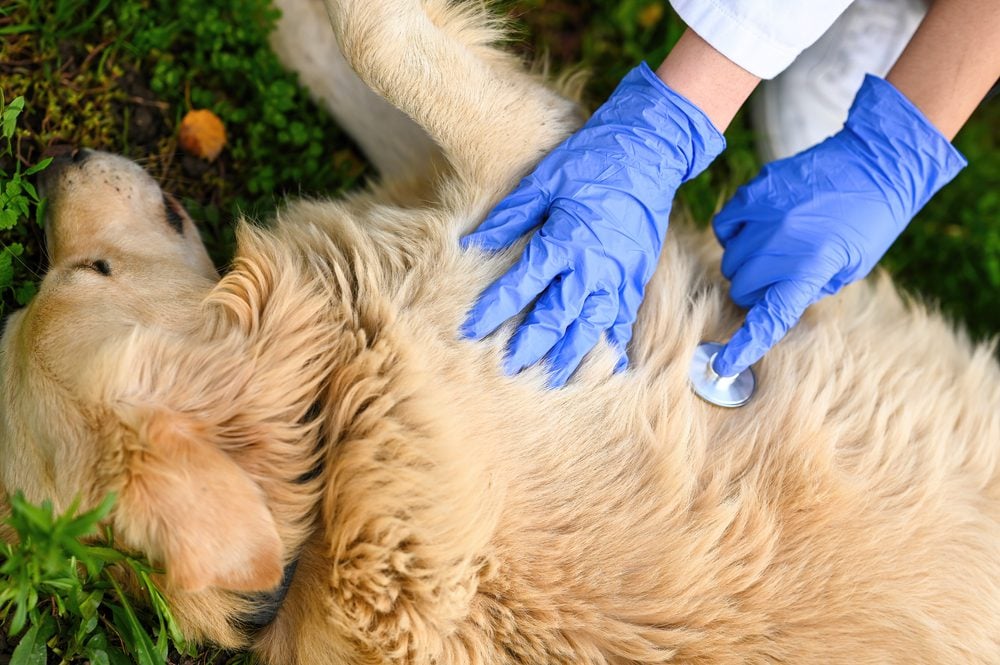
Diagnosing lung cancer in dogs starts with a physical exam. However, the most important tool for diagnosing lung cancer is x-rays of the chest. The most important one for cancer staging is a biopsy (analyzing part of the dog’s lung tissue under a microscope).
Based on the circumstances, the vet will suggest performing some of the following diagnostics: routine blood work, lymph node biopsy, bronchoalveolar lavage, computed tomography (CT scan), abdominal ultrasound, etc. Following the canine lung cancer diagnosis, the vet will determine the cancer grade and give a prognosis.
If necessary, the vet may refer the patient with lung cancer to a veterinary oncologist for a more advanced diagnostics or specialized treatment protocol.
How do You Treat Lung Cancer in Dogs?
The main treatment options for canine cancers are surgery, chemotherapy, and radiotherapy. More often than not, cancer in dogs treatment includes the use of several approaches at the same time.
Surgical Removal of the Tumor. Surgery is recommended for dogs with a single primary lung tumor and no evidence of the spread of cancer to other organs. During the surgery, the associated lymph nodes may also be removed. The surgery is of higher risk on older dogs (seniors do not tolerate general anesthesia and thoracic surgery as well as younger dogs).
Chemotherapy and Radiation Therapy. Chemotherapy and radiation therapy are commonly used in patients whose cancer has spread to other parts of the dog. The efficacy of chemotherapy and radiation vary among individuals and types of dog lung cancer.
In addition to the mainstream treatment protocol, the vet may recommend holistic treatment options for a significant improvement in the dog’s quality of life.
Cannabidiol (CBD) Products. The Honest Paws CBD Relief collection is the ideal way to start your dog to CBD. Several studies have shown CBD to have a positive effect on animal health. A dog with lung cancer can greatly benefit from CBD’s anti-inflammatory, anti-pain, and anti-anxiety properties. CBD may help dogs with lung cancer itself, related symptoms, and chemotherapy side effects.
What can I do to Prevent Lung Cancer in Dogs?
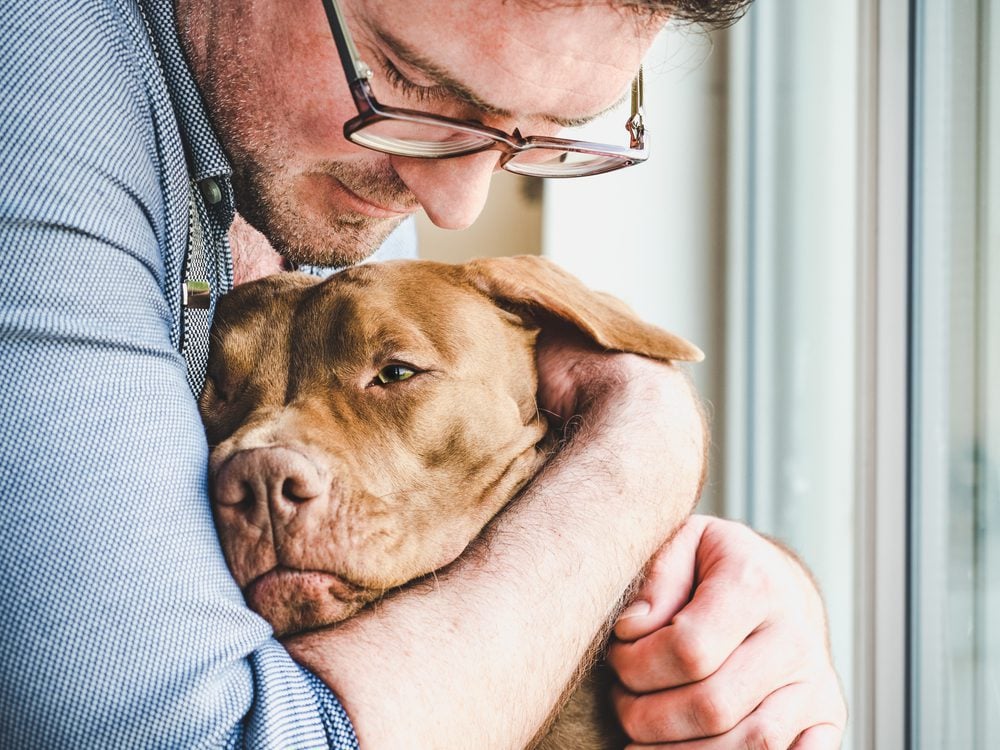
How to prevent cancer in dogs is a question with no specific answer. As a pet owner, there is not much you can do to prevent lung cancer in dogs. This is because there is little information about what causes the condition. The two risk factors you can control are cigarette smoke exposure and lifestyle quality.
If you are a smoker, avoid smoking in the presence of your dog to protect their lungs from secondhand smoke. You should also ensure good overall health for your dog by providing a high-quality diet and participating in physical activity on a regular basis.
To ensure the best possible care for your dog, you should invest in good pet insurance. The One Vet Pet Insurance Plan is one of the best deals you can get on the market today. For only $19.99 a month, your pet gets $3000 in coverage in case of an emergency, 24-hour access to a licensed vet, and cover for all pre-existing conditions.
How Long Can Dogs Live With Lung Cancer?
The life expectancy of dogs with lung cancer, even with treatment, is about a year. Sadly, this is the longest average survival time.
Dogs with high-grade tumors that have spread to other organs rarely live for more than three months after diagnosis. If the lung tumor is spread and in advanced stages, you should talk to put veterinary oncology team about euthanasia.
Your trusted veterinarian will help you decide if there is a recommended treatment or if you should just allow your dog to live comfortably for the rest of her life.
Can a Dog Survive Lung Cancer?
Yes, a dog can survive lung cancer if the cancer is caught in time and removed before it spreads to another part of the body. However, even if removed properly and with adequate animal care, lung cancer in dogs may return.
If a dog’s cancer is caught in time and the tumor is removed without spreading, a dog can live for up to two years. However, in many cases, lung cancer will come back even after surgery.
















